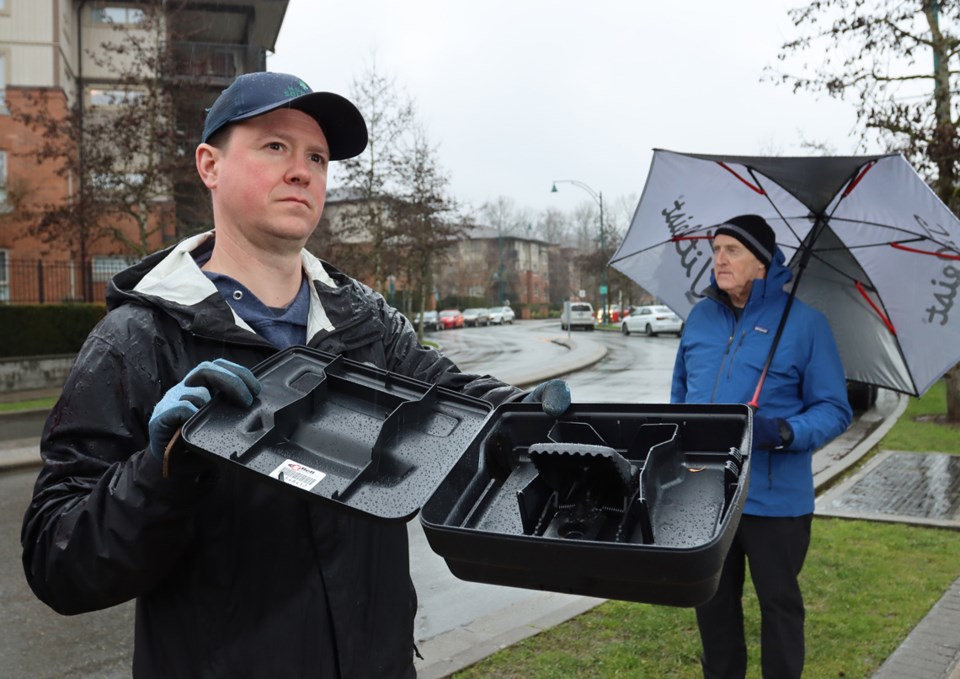A pair of environmental advocates have successfully lobbied their Port Moody strata to stop using rodenticides in its pest control program.
Now Jim Atkinson and Judy Talyor-Atkinson are hoping other private property owners will follow their strata’s lead.
Actually, it’s the city’s lead, explained Atkinson, as he was motivated to take action when Port Moody banned the use of rodenticides on city property last year. Coquitlam is also considering a similar ban on the use of poisons to kill rats and mice on city land.
Coun. Meghan Lahti, who championed Port Moody’s ban, said it’s not as much about killing the rodents as the predators like owls, hawks, raccoons, bobcats and coyotes that feed on them, and then up the food chain to larger creatures like eagles and cougars.
“Wild animals becoming ‘collateral damage’ due to the use of poisons for pest control is a big challenge,” Lahti said.
Adrian Nelson, of pest control company Humane Solutions, said most rodenticides can take up to 72 hours to kill a rat. In the meantime, the poisoned rodent slows down as it goes about its usual routines, making it easy prey. Or it can even put the poison into the human food chain by defecating in gardens or planter boxes.
Nelson’s company uses the same black plastic boxes that are a familiar sight along ground floor walls of many residential and commercial buildings or nearby shrubbery, but instead of little bags of poison inside, the rat is lured to its demise by a sweet treat in the jaws of a powerful snap trap that kills instantly.
Nelson said not only does the snap trap method ensure poison doesn’t get into the environment, it’s also an easy and efficient way for property owners to monitor the seriousness of their rodent problem or where the pests frequent.
“It allows us to make a more cohesive plan of attack,” he said, adding the traps are checked weekly.
Atkinson said it took him a bit of a sales pitch to get his strata, in the city’s Klahanie neighbourhood, on board, as the monitoring and maintenance of the traps costs a bit more — approximately an additional $17 a month for his building that has 15 to 20 traps scattered about.
But, he added, with the city showing the way, the strata “saw the importance of getting rid of chemicals.”
Lahti said Port Moody is currently endeavouring to put together an information guide for residents looking for alternatives to poison for pest control. She said they can also use non-lethal deterrents like sprinkling cayenne pepper or peppermint soap along rodent trails, or high-intensity strobe lights in enclosed spaces like basements or attics. Dry ice can also be placed in rodent burrows to eradicate their residents.
“Alternatives to rodenticides are growing in availability and effectiveness,” she said. “Ongoing research will hopefully eliminate their use completely in the future.”



